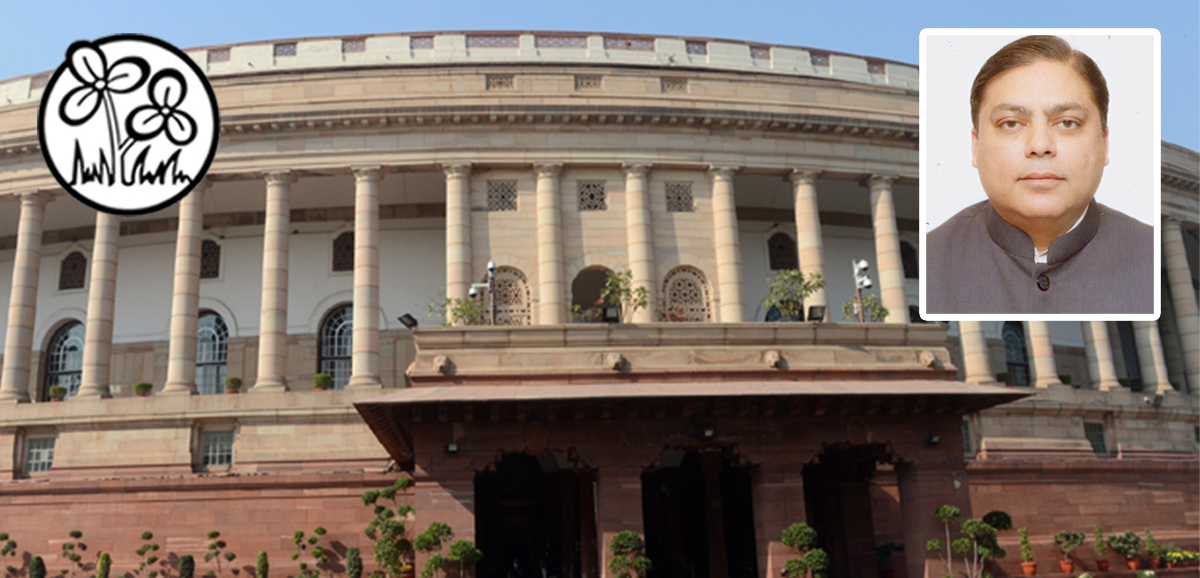December 2, 2019
Nadimul Haque speaks on The Prohibition of E-Cigarettes Bill, 2019

FULL TRANSCRIPT
Thank you, Deputy Chairman Sir, for allowing me to speak on this important issue.
“Main zindagi ka saath nibhata chala gaya.
Har fikar ko dhuen main udata chala gaya”
Respected Chairman, all of us remember this popular Hindi song from yesteryears. But no more can life and smoking be equated. Thus, we strongly support this Bill to impose ban on e-cigarettes.
However, before addressing the House on the issue, I must point out that I am strongly against using ordinances for legislation. Mr G.V. Mavalankar who was the first speaker of the Lok Sabha had rightly said that “if ordinances were not limited by convention only to urgent and extreme cases then the Government will go on issuing ordinances and Parliament will become a rubber stamp”. As parliamentarians, we should never allow that to happen.
(i) Chairman Sir, electronic cigarettes, which can be nicotine or non-nicotine based, have serious health issues for those who consume them.
Nicotine based ones have adverse effects on pregnant mothers and also end up addicting users.
(ii) The WHO also observed that e-cigarettes are heavily marketed towards youth through the use of flavours. This has resulted in a rapid increase in consumption of e-cigarettes among the youth.
(iii) Chairman Sir, we need to realize that India is a large market for tobacco products. Cigarette and beedi consumption is only 8% of the total tobacco consumption in India. Another large market is oral or chewable tobacco, like khaini, gutkha and pan masala. Many studies show the link between chewed tobacco and oral cancer. The WHO has also recommended a ban on chewed tobacco products in India.
(iv) In West Bengal, there is a total ban on manufacture, storage, distribution and sale of gutka and paan masala since 2013. We have extended the ban by another year this November. The ban is in accordance with the provisions of the Food Safety and Standards Act, 2006 for public benefit.
(v) Chairman Sir, smoking is like paying to cut your life shorter. Tobacco kills more than 10 lakh Indians every year.
I recommend extending the mandate of this Bill to cover all tobacco products including gutka and paan masala. As per an answer laid by the Ministry, Food Safety and Standards Authority of India (FSSAI) has not issued any direction to ban paan masala. Only banning electronic cigarettes should not be seen as a solution to the problem of smoking. The tobacco lobby in India enjoys considerable political influence. We should take steps to phase out traditional cigarettes as well to benefit our people.
(vi) Till the time we can implement an effective ban that does not affect the livelihoods of workers, we should consider their interests as well. In 2018, tobacco farmers complained to the Centre about illegal smuggling of cigarettes by overseas companies. Due to this, the cumulative loss in earnings of tobacco farmers has been more than Rs 3,650 crore in the last three years.
What has the Centre done to protect their interests?
Interests of the 50 lakh people employed in the beedi industry of India should also be considered. These workers, 90% of them being women, supplement their incomes through the very low wages they get from rolling beedis. We should remember to provide them with assistance as well.
Here I would like to talk about the flagship social security scheme of the West Bengal Government, Samajik Suraksha Yojana (SSY) which has been a big success.
A total of 1.10 crore workers from various unorganised sectors including beedi workers have registered themselves under the scheme. The government has already spent Rs 1,530 crore on the scheme to provide benefits to workers.
These include provident fund, health insurance under Swasthya Sathi Scheme, financial assistance for the education of children and training in safety and skill development. I urge the Centre to consider adopting a social security model for the vast number of informal tobacco industry workers in the country, along the lines of the successful Bengal model.
(vii) Chairman Sir, the Bill prohibits and also penalises anyone who is stocking, advertising or trading e-cigarettes. The act of using e-cigarettes has not been banned by the bill. So, smoking e-cigarettes has been discouraged but the actual consumption of e-cigarettes in so many words hasn’t been banned.
Consumers of e-cigarettes will now be confused whether using e-cigarettes would make them offenders. The police have also been given powers to enter premises, search for and seize e-cigarettes without a warrant, which is a disproportionate intrusion into a person’s privacy. It is imperative to formulate clearly defined legislation to protect the interests of the people.
(ix) We must ensure, the production and consumption of harmful tobacco products is regulated, and possibly prohibited.While the effects of smoking cigarettes takes upto 25 to 30 years to set in, often fatally, in the case of e-cigarettes the effect is much quicker and it can become fatal in just a couple of years.
(x) We must ensure that the production and consumption of harmful tobacco and nicotine based products is regulated and possibly prohibited. However, it is hypocritical that the Centre bans e-cigarettes citing health issues on one hand and holds stakes directly and indirectly in major tobacco companies of the country on the other. If the Centre cares about the health of Indians, why doesn’t it ban cigarettes completely?
To save the lives of all Indians, I would urge the government to implement this ban effectively and immediately. Even if other tobacco products cannot be banned, this is Step 2 out of 10, and this is a step in the right direction. I hope we will surely move towards Step 10, wherein all tobacco products will be banned, for a healthy and prosperous future.
Thank you, Sir.
